For decades, books and movies have foretold the rise of the machines, imagining a world in which robots revolt and overtake their creators. To most, the concept of artificial intelligence (AI) still seems like the stuff of a science fiction future. However, the reality is that artificial intelligence is already here, and it’s something that most of us interact with every day.
In 2011, millions tuned in as IBM’s “Watson” defeated record-setting winner Ken Jennings on Jeopardy! Fourteen years earlier, IBM’s “Deep Blue” triumphed over world chess champion Garry Kasparov. Today, Google is developing a self-driving car, and Facebook has an entire laboratory dedicated solely to artificial intelligence. Closer to home, at some point today, you or someone you know most likely asked Siri to provide information on command.
While artificial intelligence may strike fear in the hearts of many, it’s here to stay and, in practice, it’s far less scary than Hollywood would have us believe. In fact, it could even be the next best thing for your business.
How AI Works
Artificial intelligence is a complex science that can be difficult to define. Begun as an attempt to positively answer Alan Turing’s famous question, “Can machines think?,” AI, at its very core, aims to create a machine that can replicate the human brain and its thought processes. True success in the field of AI would be a machine that could use language, exercise reason and judgment, and, ultimately, learn and improve itself. Despite great advances to date, the field of AI still has a long way to go before achieving these goals.
Artificial intelligence, sometimes also referred to as machine learning or deep learning, is essentially a way of programming computers to analyze mountains of data and recognize things by producing their own internal rules that programmers are unable to define. This is largely achieved through sets of algorithms and layers of processing that attempt to mimic the thought processes of the human brain.
Much of AI revolves around image and pattern recognition. The machine will analyze thousands or millions of data points to find the best combinations to match sets of rules or outcomes predefined by programmers. Therefore, AI has potential uses for any business function that involves the review of large volumes of information.
Recent Trends in AI
One area that has recently seen some of the greatest growth in the use of AI is the interviewing and hiring of job candidates. The latest sector to turn to AI for recruiting is Wall Street. Some of the country’s largest banks, including Goldman Sachs, Morgan Stanley, Citigroup, and UBS, have recently expressed interest in using artificial intelligence software to vet the large crop of candidates vying for coveted positions at their companies.
At a time when banks are struggling to attract and keep top talent, while also facing increased pressure to cut costs, executives hope that turning to AI will cut back on the expenses associated with bad hires and high turnover rates. The driving idea is that hiring software is better equipped to evaluate applicants on traits that aren’t always discernible in resumes and interviews—intangible and subjective qualities such as curiosity, grit, or teamwork.
The chief goal is to find software that can predict which job applicants will be successful hires based on patterns developed from past hiring tests in relation to certain characteristics that have been flagged as desirable. The software and its algorithms are tailored to the particular company using them, as each bank or company has a different idea of what characteristics are necessary for success.
The Role of AI in the Hiring Process
Since AI is designed to handle large volumes of data, AI recruiting software will be most useful to large corporations with many positions to fill, or those that receive large quantities of resumes and cover letters, both solicited and unsolicited.
AI used in hiring takes various forms. One popular option is a video-interviewing platform that uses AI to screen applicants not only for the content of their answers, but also for aspects of their presentation, such as word choice, body language, and other delivery factors. Other software is designed to scour the Internet and compile exhaustive profiles of potential candidates based on social media sites and publicly available information.
It’s important to note, however, that companies have not yet completely transitioned the hiring process to computers. Most employers hesitate to use AI software to make ultimate hiring decisions. In most cases, AI is used as a complement to in-person interviews and other traditional screening processes. The real benefit of the software is the ability to take the time-consuming grunt work of reviewing the whole candidate pool out of the hands of humans and put it in the hands of super-fast machines.
While machines may narrow the applicant pool down to a few candidates, for the moment, humans are still deciding who ultimately gets the job.
The Benefits of Using AI for Hiring
- Speed and Efficiency
Like all technology, AI’s greatest benefits come in the form of speed and efficiency. Imagine that one of the world’s hottest tech companies posts a job opening for a highly competitive and attractive position. It could take a human recruiter several days, if not weeks, to sift through the mountain of resumes and other materials received from interested candidates and narrow down the pool of people to be interviewed. This means that available positions frequently remain vacant for months before they are filled, translating to lost productivity and earnings for the company. AI software, on the other hand, could theoretically review millions of applications in a single day, drastically decreasing the amount of time lost in the hiring process.
- More Data Can Be Considered
There’s no question that computers can analyze exponentially more data in significantly less time than humans can. Employers can capitalize on this speed by increasing the number of factors that are deemed important in choosing applicants.
Beyond simple word recognition, algorithms can help to identify potentially desirable candidates in ways that humans can’t, by correlating past job skills with new job needs. While specific experience may not appear on a resume, software can detect patterns in past experience that would predict success in learning specific new skills. Moreover, with software designed to exhaustively parse Internet histories, automated searches can quickly detect if candidates have unacceptable traits, such as being racist, sexist, or violent, or have ever engaged in illegal behaviors, such as drug use. This information may never have been found by humans who lack the time necessary to scroll through thousands of social media posts.
At the very least, software can efficiently eliminate applicants who clearly lack certain predefined skills that are essential to the job. Between mistakes and lost business opportunities, hiring the wrong person can cost a company millions of dollars. One of the largest driving forces behind the shift to AI at many companies is the desire to avoid these costly bad hires.
- Increased Objectivity
While it may seem counterintuitive, some researchers postulate that machines are more capable than humans of analyzing candidates’ personalities and other unquantifiable characteristics. In fact, software developers claim that machines are not only capable of considering more information, but are also more objective about applicants than human recruiters are.
The idea behind machines’ so-called “objectivity” is that they are impervious to the personal biases that human recruiters bring to reviewing candidates and their responses. Unlike humans, the theory goes, computers will not eliminate candidates with the desired skill set simply because they also possess personality traits or certain other subjective characteristics that are irrelevant or unrelated to job performance. As a simple example, a computer will never reject a perfect applicant because he or she reminds the software of someone it used to hate.
The Downsides
- A Human Element May Be Necessary
The obvious flip side to the benefit of impartiality is the loss of a certain, unquantifiable human element from the process. At most companies, there are still strong notions of “fit” or “culture” that play a major role in whether employees will succeed. These ideas usually defy definition, making it impossible for programmers to accurately create algorithms to identify them. AI is not yet capable of judging whether candidates will “fit in” at a company in the way that human interviewers can. Anyone who has put in long hours at the office knows that personality fit is hugely important to productivity and office morale.
- Perpetuation of Biases
Contrary to the argument that machines are more objective than humans, some opponents of AI argue that software only serves to perpetuate already-existing biases in hiring. The undeniable fact is that AI functions on algorithms created by human programmers. Whether consciously or not, these programmers’ biases can be incorporated into the algorithms. This is especially true of algorithms that are created from existing hiring practices. If the existing practice is flawed or biased, the algorithm necessarily will be, too. The perpetuation of past hiring mistakes runs directly counter to the reason most companies are turning to AI—namely, to change current hiring practices and avoid the bad hires that have plagued them in the past.
- Privacy Concerns
In a world where much of the job search process has become automated—gone are the days of reading want ads in the newspapers—the incorporation of AI shouldn’t come as much of a shock to most. Nonetheless, many people still hold some degree of false belief that their personal information, even that on the Internet, will somehow remain private. Whether it’s due to a lack of understanding of how social media works, or a naïve belief that potential employers won’t invest the time necessary to uncover questionable past posts, many people persist in deluding themselves that their social media activity will remain unseen, despite all indications to the contrary. With increased reliance on Internet-scouring AI, what used to be a chance of uncovering dirt has now become a near certainty.
- Job Elimination
Perhaps the greatest fear in the world of developing AI is that machines will take away jobs, ultimately eliminating the need for humans in the workforce. Much like machinery eliminated many blue-collar jobs after the Industrial Revolution, many fear that AI will do the same in today’s white-collar world.
The harsh truth is that, inevitably, some jobs may be lost to AI. However, at least in the hiring realm, it’s unlikely that humans will ever be eliminated altogether. The algorithms used by AI are developed by people, and the input of hiring professionals who are familiar with amorphous notions of “fit” and “personality” will always be essential. Moreover, even with heavy use of AI, most companies are still relying on humans to make the final hiring decisions.
Rather than job elimination, the more likely effect of AI will be a shift in recruiters’ job roles, away from finding candidates and reviewing resumes to instead deciding which candidates identified by AI are the right hires. It seems highly unlikely that the in-person interview will completely disappear; rather, AI will serve to speed up the process that leads to it.
- Liability Issues
A final consideration for the increased reliance on AI is the implications it may have for legal liability. Some experts have speculated that our liability rules will need to be changed or expanded now that we’re taking some decisions out of the hands of humans. If the computer makes a wrong decision and exposes a company to a potential discrimination suit, for example, who is liable? While the answer is likely some combination of the company and the developer, this is just one of many potential problems that will need to be address as AI expands into new realms. As intelligent as it may be, AI is still simply a tool that is used by humans who remain liable for any harm it may cause.
Into the Great Beyond
Researchers are just beginning to scratch the surface of the vast world of possibilities that AI could open. While it may look a lot less exciting than Hollywood predicted, artificial intelligence is a real thing and it seems that it’s here to stay. Recruiting and hiring will only become more automated as researchers continue to achieve greater advances in developing AI software.
Rather than resisting change, it’s time to embrace it and consider how AI can improve your business efficiency and help your bottom line.
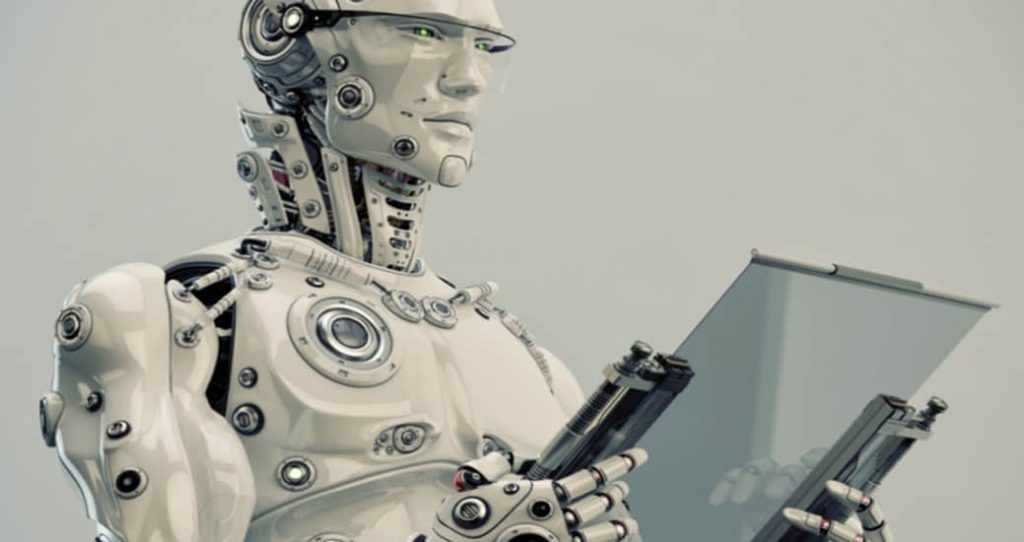







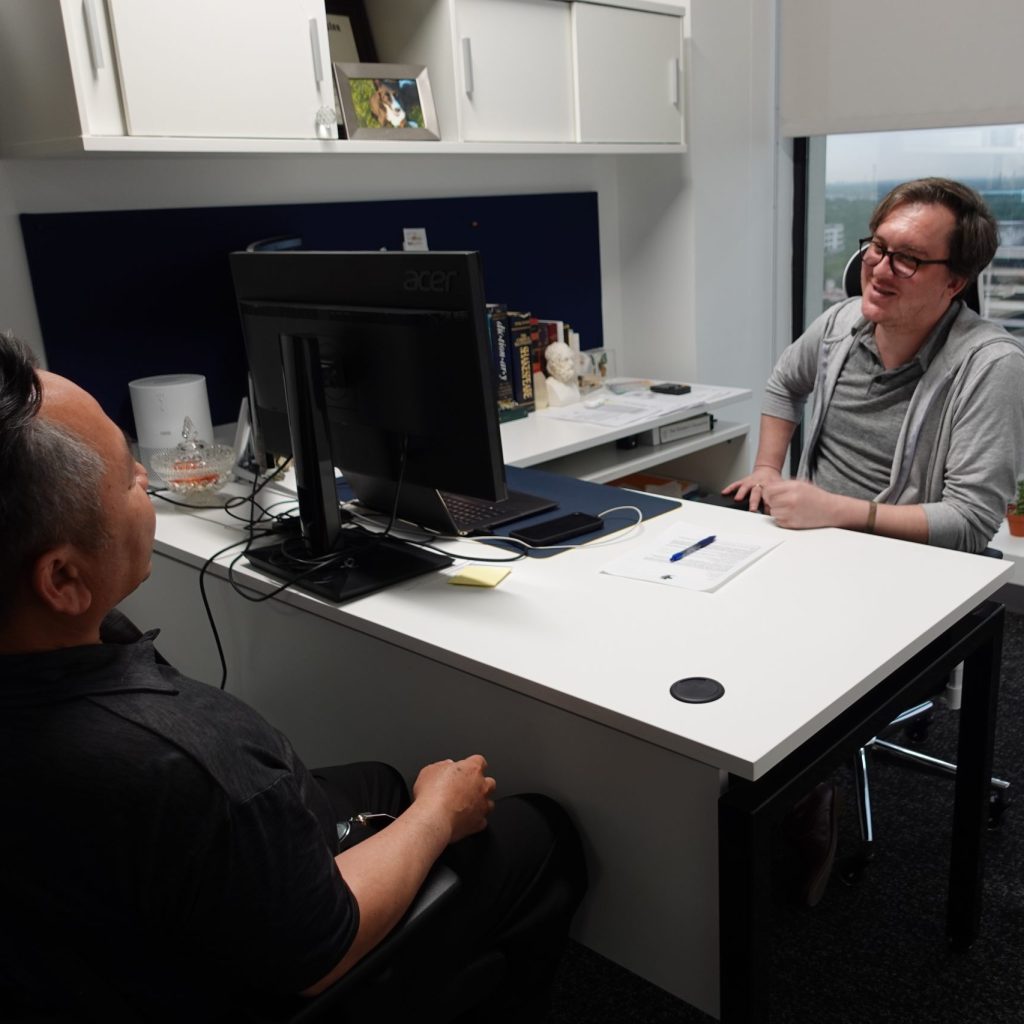
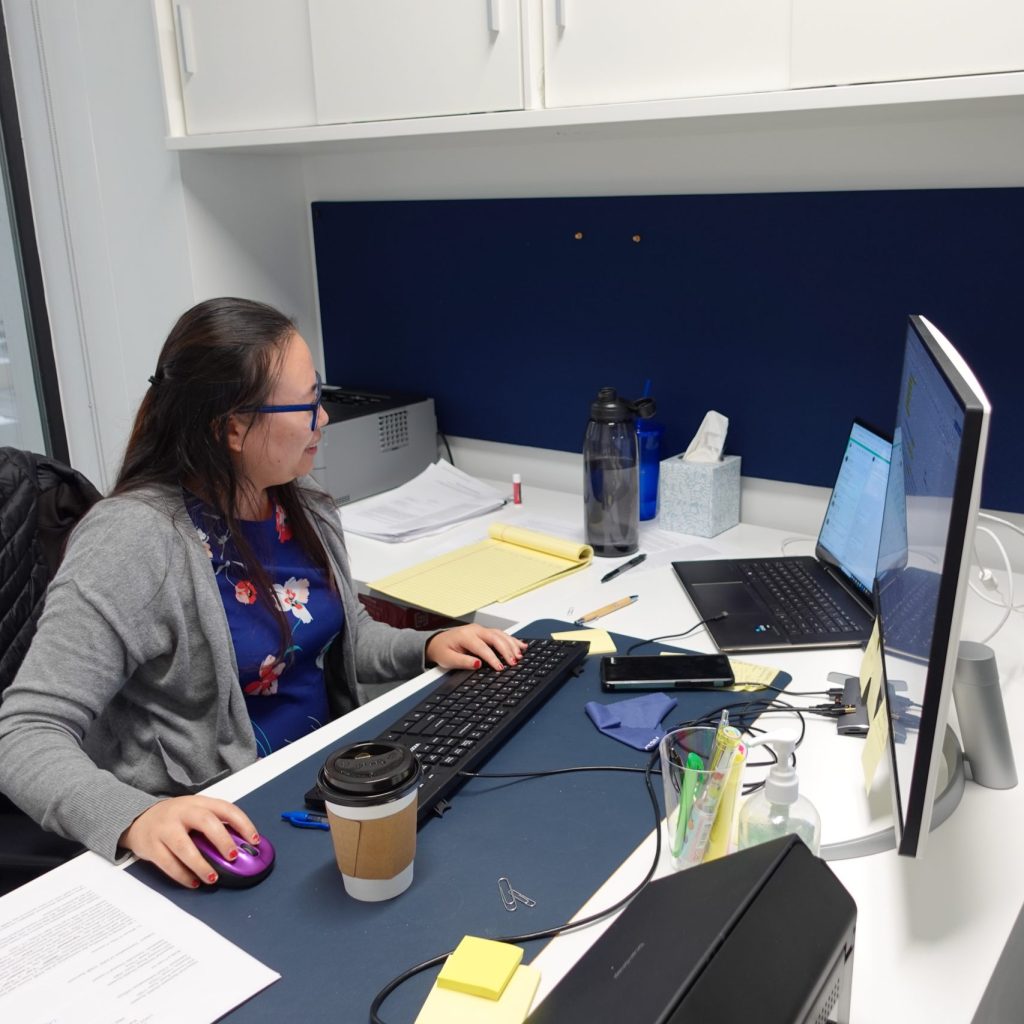
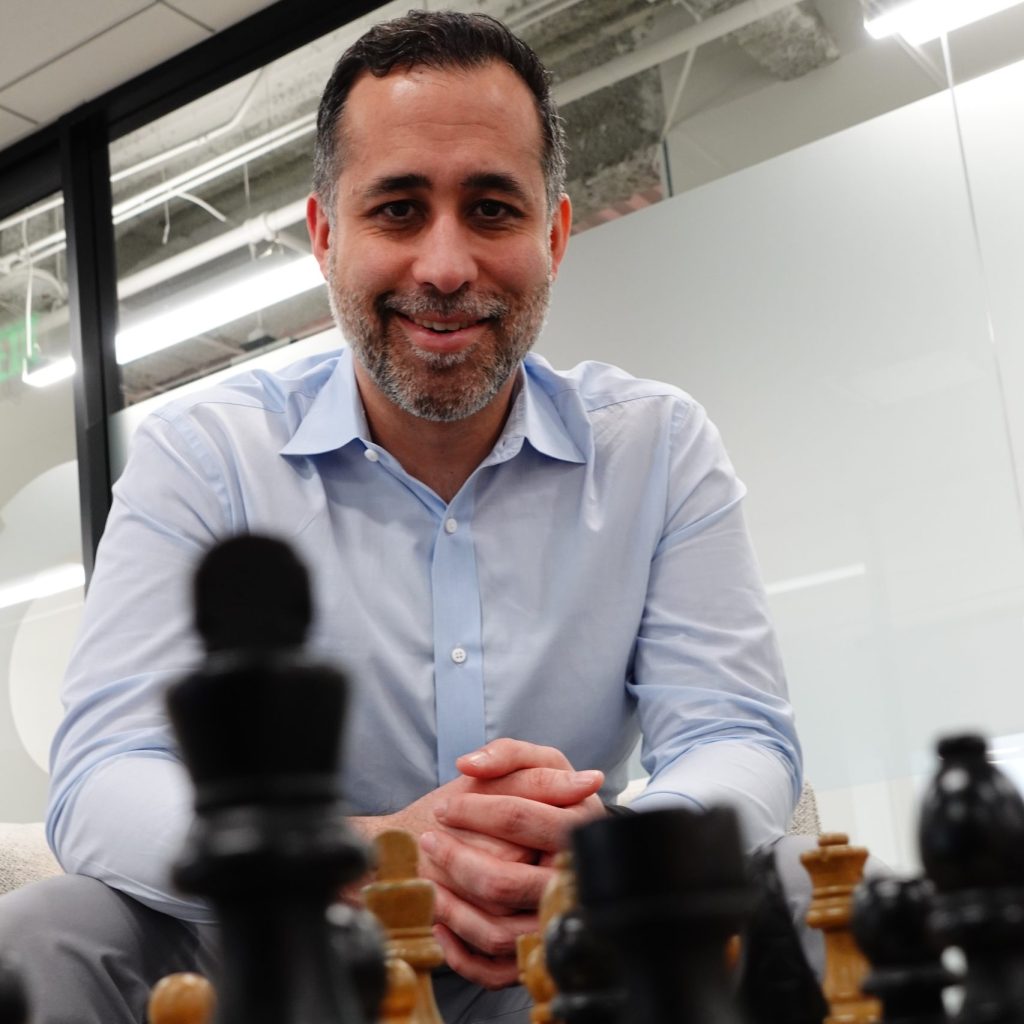
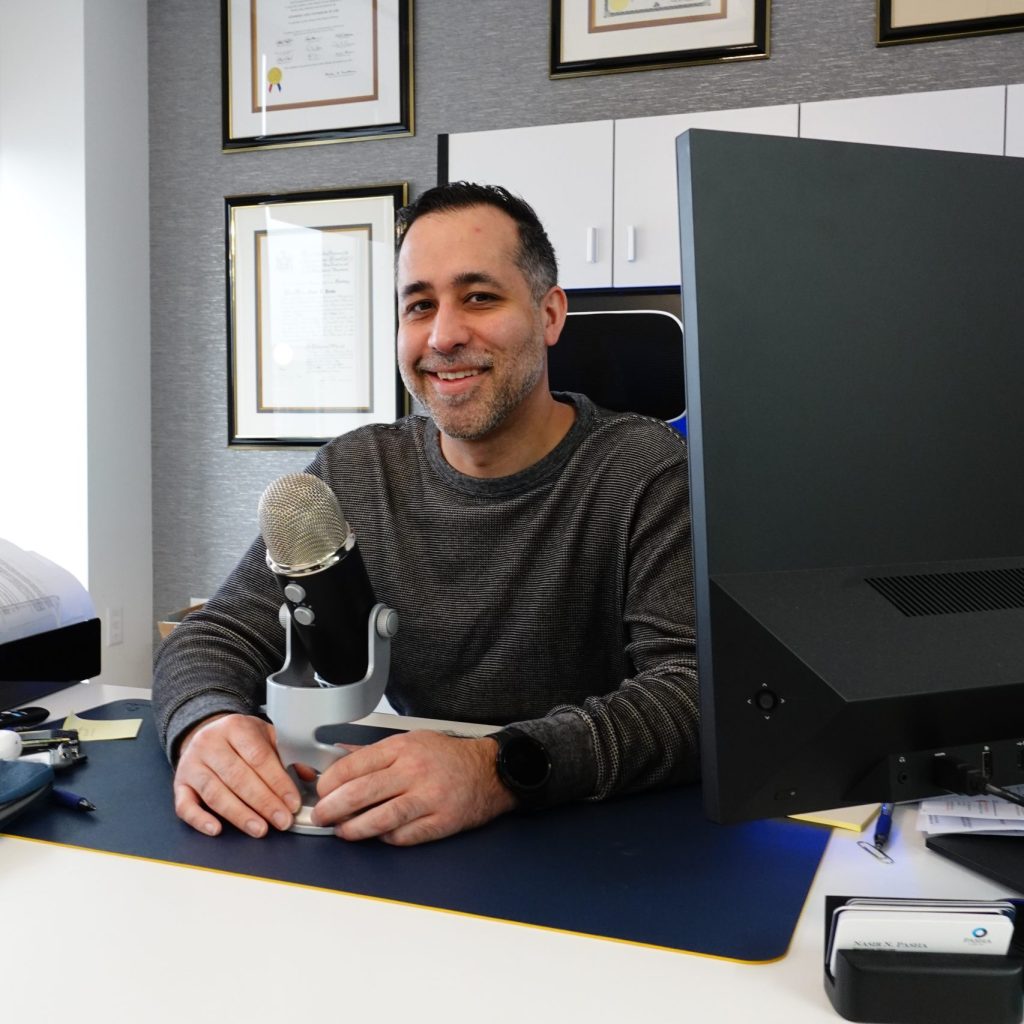
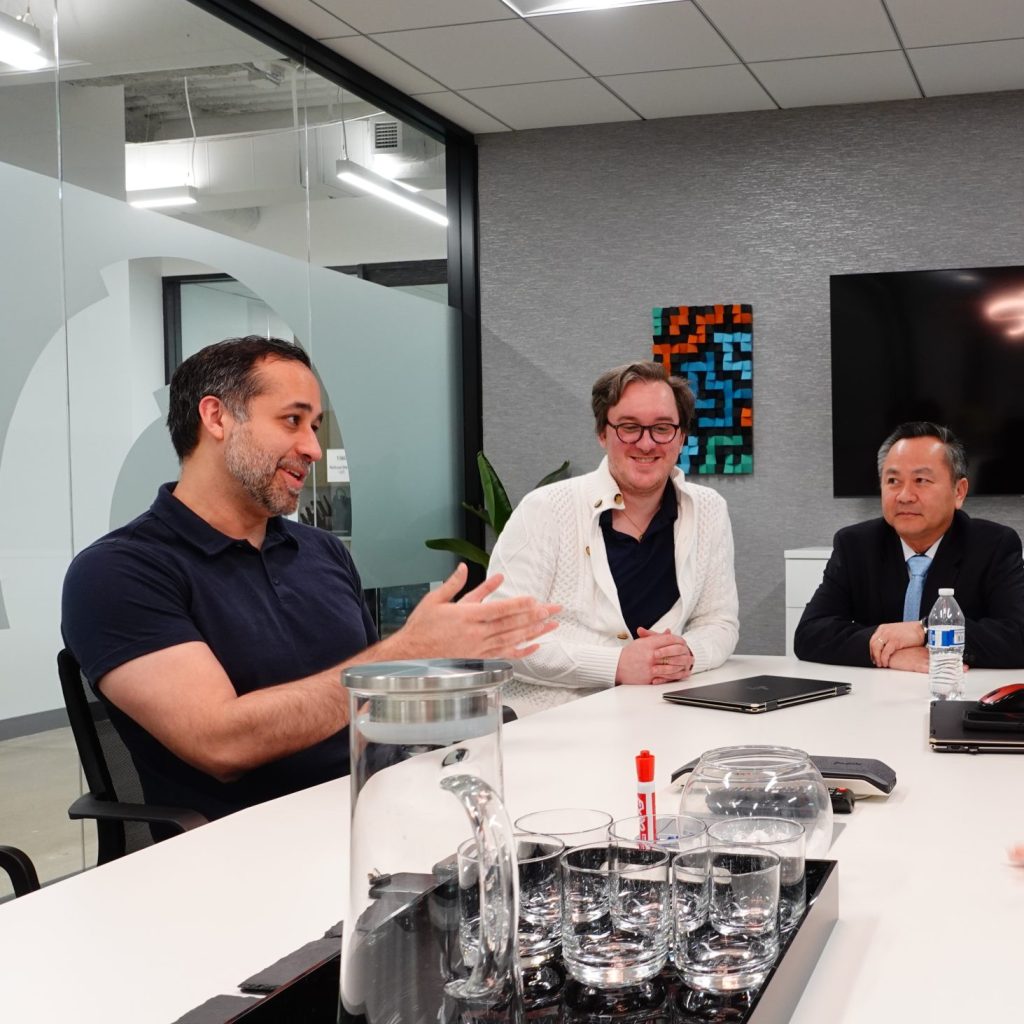




![Law in the Digital Age: Exploring the Legal Intricacies of Artificial Intelligence [e323]](https://www.pashalaw.com/wp-content/uploads/2023/11/WhatsApp-Image-2023-11-21-at-13.24.49_4a326c9e-300x212.jpg)
![Unraveling the Workforce: Navigating the Aftermath of Mass Layoffs [e322]](https://www.pashalaw.com/wp-content/uploads/2023/07/Untitled-design-23-300x212.png)
![Return to the Office vs. Remote: What Can Employers Legally Enforce? [e321]](https://www.pashalaw.com/wp-content/uploads/2023/01/Pasha_LSSB_321_banner-300x212.jpg)
![Explaining the Hans Niemann Chess Lawsuit v. Magnus Carlsen [e320]](https://www.pashalaw.com/wp-content/uploads/2022/10/LAWYER-EXPLAINS-7-300x169.png)
![California v. Texas: Which is Better for Business? [313]](https://www.pashalaw.com/wp-content/uploads/2021/07/Pasha_LSSB_CaliforniaVSTexas-300x212.jpg)
![Buyers vs. Sellers: Negotiating Mergers & Acquisitions [e319]](https://www.pashalaw.com/wp-content/uploads/2022/06/Pasha_LSSB_BuyersVsSellers_banner-300x212.jpg)
![Employers vs. Employees: When Are Employment Restrictions Fair? [e318]](https://www.pashalaw.com/wp-content/uploads/2022/05/Pasha_LSSB_EmployeesVsEmployers_banner-1-300x212.jpg)
![Vaccine Mandates Supreme Court Rulings [E317]](https://www.pashalaw.com/wp-content/uploads/2022/02/WhatsApp-Image-2022-02-11-at-4.10.32-PM-300x212.jpeg)
![Business of Healthcare [e316]](https://www.pashalaw.com/wp-content/uploads/2021/11/Pasha_LSSB_BusinessofHealthcare_banner-300x212.jpg)
![Social Media and the Law [e315]](https://www.pashalaw.com/wp-content/uploads/2021/10/WhatsApp-Image-2021-10-06-at-1.43.08-PM-300x212.jpeg)
![Defining NDA Boundaries: When does it go too far? [e314]](https://www.pashalaw.com/wp-content/uploads/2021/09/Pasha_LSSB_NDA_WordPress-2-300x212.jpg)
![More Than a Mistake: Business Blunders to Avoid [312] Top Five Business Blunders](https://www.pashalaw.com/wp-content/uploads/2021/06/Pasha_LSSB_Blunders_WP-1-300x212.jpg)
![Is There a Right Way to Fire an Employee? We Ask the Experts [311]](https://www.pashalaw.com/wp-content/uploads/2021/02/Pasha_LSSB_FireAnEmployee_Website-300x200.jpg)
![The New Frontier: Navigating Business Law During a Pandemic [310]](https://www.pashalaw.com/wp-content/uploads/2020/12/Pasha_LSSB_Epidsode308_Covid_Web-1-300x200.jpg)
![Wrap Up | Behind the Buy [8/8] [309]](https://www.pashalaw.com/wp-content/uploads/2020/11/Pasha_BehindTheBuy_Episode8-300x200.jpg)
![Is it all over? | Behind the Buy [7/8] [308]](https://www.pashalaw.com/wp-content/uploads/2020/09/iStock-1153248856-overlay-scaled-300x200.jpg)
![Fight for Your [Trademark] Rights | Behind the Buy [6/8] [307]](https://www.pashalaw.com/wp-content/uploads/2020/07/Fight-for-your-trademark-right-300x200.jpg)
![They Let It Slip | Behind the Buy [5/8] [306]](https://www.pashalaw.com/wp-content/uploads/2020/06/Behind-the-buy-they-let-it-slip-300x200.jpg)
![Mo’ Investigation Mo’ Problems | Behind the Buy [4/8] [305]](https://www.pashalaw.com/wp-content/uploads/2020/05/interrobang-1-scaled-300x200.jpg)
![Broker or Joker | Behind the Buy [3/8] [304] Behind the buy - Broker or Joker](https://www.pashalaw.com/wp-content/uploads/2020/04/Joker-or-Broker-1-300x185.jpg)
![Intentions Are Nothing Without a Signature | Behind the Buy [2/8] [303]](https://www.pashalaw.com/wp-content/uploads/2020/04/intentions-are-nothing-without-a-signature-300x185.jpg)
![From First Steps to Final Signatures | Behind the Buy [1/8] [302]](https://www.pashalaw.com/wp-content/uploads/2020/04/first-steps-to-final-signatures-300x185.jpg)
![The Dark-side of GrubHub’s (and others’) Relationship with Restaurants [e301]](https://www.pashalaw.com/wp-content/uploads/2015/04/When-Competition-Goes-Too-Far-Ice-Cream-Truck-Edition-300x201.jpg)
![Ultimate Legal Breakdown of Internet Law & the Subscription Business Model [e300]](https://www.pashalaw.com/wp-content/uploads/2019/05/Ultimate-Legal-Breakdown-of-Internet-Law-the-Subscription-Business-Model-300x196.jpg)
![Why the Business Buying Process is Like a Wedding?: A Legal Guide [e299]](https://www.pashalaw.com/wp-content/uploads/2019/03/futura-300x169.jpg)
![Will Crowdfunding and General Solicitation Change How Companies Raise Capital? [e298]](https://www.pashalaw.com/wp-content/uploads/2018/11/Will-Crowdfunding-and-General-Solicitation-Change-How-Companies-Raise-Capital-300x159.jpg)
![Pirates, Pilots, and Passwords: Flight Sim Labs Navigates Legal Issues (w/ Marc Hoag as Guest) [e297]](https://www.pashalaw.com/wp-content/uploads/2018/07/flight-sim-labs-300x159.jpg)
![Facebook, Zuckerberg, and the Data Privacy Dilemma [e296] User data, data breach photo by Pete Souza)](https://www.pashalaw.com/wp-content/uploads/2018/04/data-300x159.jpg)
![What To Do When Your Business Is Raided By ICE [e295] I.C.E Raids business](https://www.pashalaw.com/wp-content/uploads/2018/02/ice-cover-300x159.jpg)
![General Contractors & Subcontractors in California – What you need to know [e294]](https://www.pashalaw.com/wp-content/uploads/2018/01/iStock-666960952-300x200.jpg)
![Mattress Giants v. Sleepoplis: The War On Getting You To Bed [e293]](https://www.pashalaw.com/wp-content/uploads/2017/12/sleepopolis-300x159.jpg)
![The Harassment Watershed [e292]](https://www.pashalaw.com/wp-content/uploads/2017/12/me-2-300x219.jpg)
![Investing and Immigrating to the United States: The EB-5 Green Card [e291]](https://www.pashalaw.com/wp-content/uploads/2012/12/eb-5-investment-visa-program-300x159.jpg)
![Responding to a Government Requests (Inquiries, Warrants, etc.) [e290] How to respond to government requests, inquiries, warrants and investigation](https://www.pashalaw.com/wp-content/uploads/2017/10/iStock_57303576_LARGE-300x200.jpg)
![Ultimate Legal Breakdown: Employee Dress Codes [e289]](https://www.pashalaw.com/wp-content/uploads/2017/08/Ultimate-Legal-Breakdown-Template-1-300x159.jpg)
![Ultimate Legal Breakdown: Negative Online Reviews [e288]](https://www.pashalaw.com/wp-content/uploads/2017/06/Ultimate-Legal-Breakdown-Online-Reviews-1-300x159.jpg)
![Ultimate Legal Breakdown: Social Media Marketing [e287]](https://www.pashalaw.com/wp-content/uploads/2017/06/ultimate-legal-breakdown-social-media-marketing-blur-300x159.jpg)
![Ultimate Legal Breakdown: Subscription Box Businesses [e286]](https://www.pashalaw.com/wp-content/uploads/2017/03/ultimate-legal-breakdown-subscription-box-services-pasha-law-2-300x159.jpg)
![Can Companies Protect Against Foreseeable Misuse of Apps [e285]](https://www.pashalaw.com/wp-content/uploads/2017/01/iStock-505291242-300x176.jpg)
![When Using Celebrity Deaths for Brand Promotion Crosses the Line [e284]](https://www.pashalaw.com/wp-content/uploads/2017/01/celbrity-300x159.png)
![Are Employers Liable When Employees Are Accused of Racism? [e283] Racist Employee](https://www.pashalaw.com/wp-content/uploads/2016/12/Are-employers-liable-when-an-employees-are-accused-of-racism-300x159.jpg)
![How Businesses Should Handle Unpaid Bills from Clients [e282] What to do when a client won't pay.](https://www.pashalaw.com/wp-content/uploads/2016/12/How-Businesses-Should-Handle-Unpaid-Bills-to-Clients-300x159.png)
![Can Employers Implement English Only Policies Without Discriminating? [e281]](https://www.pashalaw.com/wp-content/uploads/2016/11/Can-Employers-Impliment-English-Only-Policies-Without-Discriminating-300x159.jpg)
![Why You May No Longer See Actors’ Ages on Their IMDB Page [e280]](https://www.pashalaw.com/wp-content/uploads/2016/10/IMDB-AGE2-300x159.jpg)
![Airbnb’s Discrimination Problem and How Businesses Can Relate [e279]](https://www.pashalaw.com/wp-content/uploads/2016/09/airbnb-300x159.jpg)
![What To Do When Your Amazon Account Gets Suspended [e278]](https://www.pashalaw.com/wp-content/uploads/2016/09/What-To-Do-When-Your-Amazon-Account-Gets-Suspended-1-300x200.jpg)
![How Independent Artists Reacted to Fashion Mogul Zara’s Alleged Infringement [e277]](https://www.pashalaw.com/wp-content/uploads/2016/08/How-Independent-Artists-Reacted-to-Fashion-Mogul-Zaras-Alleged-Infringement--300x159.jpg)
![Can Brave’s Ad Replacing Software Defeat Newspapers and Copyright Law? [e276]](https://www.pashalaw.com/wp-content/uploads/2016/08/Can-Braves-Ad-Replacing-Software-Defeat-Newspapers-and-Copyright-Law-300x159.jpg)
![Why The Roger Ailes Sexual Harassment Lawsuit Is Far From Normal [e275]](https://www.pashalaw.com/wp-content/uploads/2016/07/WHY-THE-ROGER-AILES-SEXUAL-HARASSMENT-LAWSUIT-IS-FAR-FROM-NORMAL-300x159.jpeg)
![How Starbucks Turned Coveted Employer to Employee Complaints [e274]](https://www.pashalaw.com/wp-content/uploads/2016/07/iStock_54169990_LARGE-300x210.jpg)
